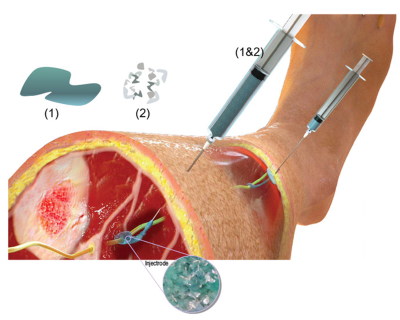Pfizer now has the required regulatory approvals for its $4.9 billion acquisition of obesity drug developer Metsera, but whether and when that deal closes may depend on the outcome of two lawsuits the pharmaceutical giant has filed in opposition to Novo Nordisk’s last-minute submission of a competitive bid.
The Federal Trade Commission on Friday advance authorization for Pfizer’s proposed acquisition of Metsera, underscoring a key point in the company’s lawsuit against Metsera and Novo Nordisk alleging breach of contract. Pfizer said its acquisition proposal offered the chance to close a deal faster because the pharmaceutical giant’s small presence in metabolic drugs was less likely to raise antitrust concerns.
By contrast, Wegovy, Novo’s weekly injectable GLP-1 drug, is currently the top-selling obesity drug and the Denmark-based drugmaker has a broad pipeline of additional obesity drugs in various stages of development, many of them coming from other commercial deals. Last week, Novo Nordisk made an unsolicited $6.5 billion bid for Metsera, whose lead program is a longer-acting GLP-1 agonist with potential for once-monthly dosing. Metsera said it would accept Novo’s offer, which it says is a superior proposal.
Pfizer argues that Novo’s offer cannot be considered superior under the terms of its merger agreement with the biotech because of the significant antitrust risk. Metsera’s regulatory filings on the Pfizer deal noted that regulatory review of a Novo acquisition could take up to two years and that the deal may not close at all. Pfizer said in its lawsuit that these risks led Metsera’s board to reject an earlier offer from Novo and those risks remain unchanged.
Pfizer’s lawsuit was presented on Friday in the Delaware Court of Chancery. In addition to breach of contract, Pfizer alleges that Metsera’s acceptance of Novo’s offer constitutes a breach of fiduciary duty and tortious interference with a contract. Pfizer claims Novo’s bid represents an attempt by a dominant obesity pharmaceutical company to suppress competition. The pharmaceutical giant also maintains that the Novo deal is structured to deliberately evade antitrust review.
Under the terms of the deal, Novo would pay $56.50 for each Metsera share, equivalent to $6.5 billion. This payment would not require regulatory approval of the deal and would occur before any FTC action. In exchange for the payment, Metsera would issue non-voting shares of Novo that would represent 50% of the company’s shares, according to the terms of the agreement. Ten days later, Metsera would issue its shareholders a dividend of $56.50 per share. Pfizer said this special dividend violates Delaware law, adding that Metsera’s directors have breached their fiduciary duties by “obtaining a self-interest indemnification provision from Novo Nordisk designed to cover its illegal conduct.”
Pfizer Expands Antitrust Allegations in Second Lawsuit presented on Monday in the United States District Court for the District of Delaware. This lawsuit alleges that Novo’s Metsera bid violates Section 7 of the Clayton Antitrust Lawwhich prohibits merger and acquisition activity in cases where the effect reduces competition or creates a monopoly. Pfizer said an acquisition of Metsera by Novo would have anti-competitive effects on the market for the GLP-1 drug.
The pharmaceutical giant also argues that Novo’s agreement with Metsera amounts to a conspiracy leading to a restraint of trade in violation of Section 1 of the Sherman Act. Pfizer further alleges that the agreement is an attempted monopolization and conspiracy in violation of Section 2 of the law. The lawsuit claims that Metsera’s majority shareholders (Validae Health, Population Health Partners and funds from Arch Venture Partners) are part of this anti-competitive conspiracy.
In its announcement of the federal lawsuit, Pfizer said it “is taking this action to preserve and enhance competition in this important therapeutic area and to prevent Novo Nordisk from illegally paying Metsera and its controlling shareholders to take over, harm, and potentially kill an emerging U.S. competitor. The actions of Metsera and its controlling shareholders, as well as those of Novo Nordisk, clearly violate antitrust laws.”
Metsera issued a short statement on Friday night saying he disagreed with Pfizer’s allegations in the first lawsuit and would address them in court. The company gave more details in a monday statement issued in response to the federal lawsuit.
“Pfizer is trying to litigate to buy Metsera for a lower price than Novo Nordisk,” Metsera said. “Metsera’s board will continue to stand strong on behalf of shareholders and patients. Pfizer’s litigation arguments are nonsense and Metsera will address them in court.”
Meanwhile, merger deadlines are approaching. Pfizer’s merger agreement with Metsera states that notification of a higher offer gives the pharmaceutical giant four business days to review its offer. That deadline is the close of business on Tuesday. Metsera’s announcement of Novo’s offer noted that the agreement with Pfizer remains in full effect and the biotech’s board of directors reaffirms its recommendation that shareholders approve the adoption of this agreement. Metsera had scheduled a special meeting for Nov. 13 for shareholders to vote on Pfizer’s proposal.
Photo: Getty Images



